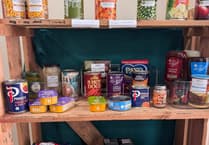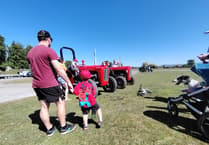DECEMBER 1, not the best time of year for a foal to be born, but walking my dog on Roborough Down early morning last week, that's exactly what I was faced with, lying in wet leaves after a night of rain coming down like stair rods.
Making the usual calls, the only luck either of us had was that a local farmer — not the owner — was kind enough to bring a gun, saving the dewey-eyed little creature from further unnecessary suffering, being carted around Yelverton to find its absent owner.
Unnecessary suffering because there is not, and has not been, a market for these foals, least of all for this one, in all the 35 years I have spent walking on the Down.
So why do the Commoners persist in breeding unwanted foals, from these gentle ponies that have over the centuries, been bred for a working relationship with us based on mutual trust?
For the past 35 to 40 years or more, the breeding of ponies on Roborough Down has been a betrayal of this trust by their owners, the commoners, and all authorities who sit to determine the husbandry and grazing of this unkempt Common.
Since the state of the livestock during the 1976 drought and ensuing hard winters, Roborough Down has been in and out of the national press.
Decades ago, there was the introduction of the Commoners' Act which was supposed, as an enabling Act, to have made a place like Roborough Down, history.
There appears to be no effective leadership within these self regulating groups, capable of taking themselves out of this mire, where the Dartmoor ponies, the emblem of Dartmoor National Park are breeding foals born solely to be shot at the end of their summer, for tigers and lions at the local zoo.
Like popping in and out of the Archers, I feel this letter could have come from any time, any year.
Chris George
Yelverton

-at-their-namesake-village-of-Yelverton.jpeg?width=209&height=140&crop=209:145,smart&quality=75)


Comments
This article has no comments yet. Be the first to leave a comment.